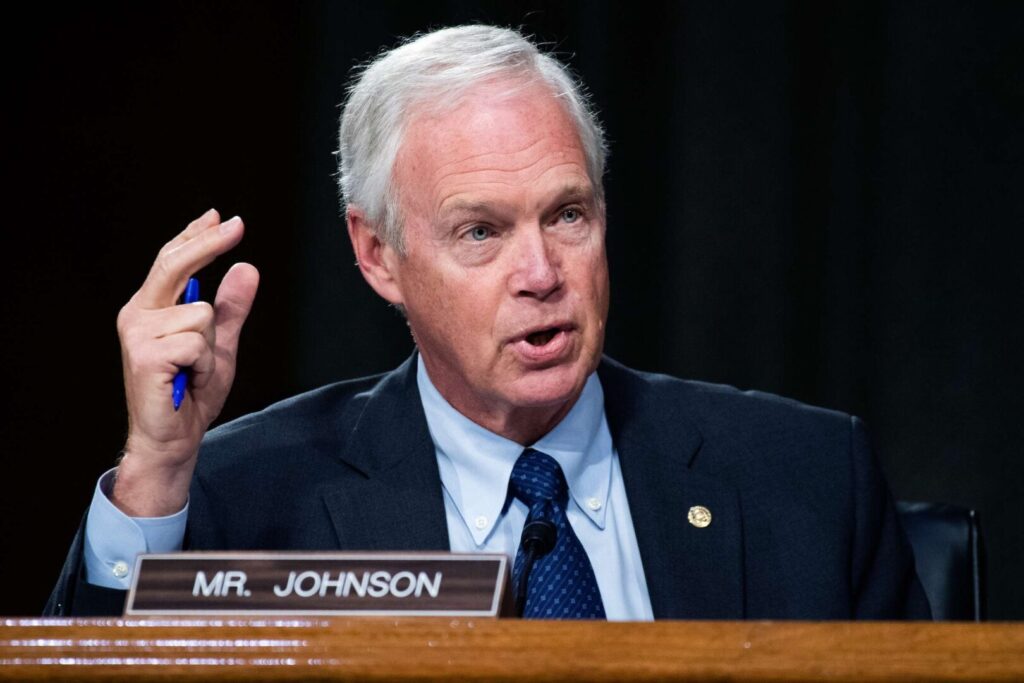A prominent federal judge known for his independence during President Donald Trump’s first term has ordered the Trump administration to cease violating federal law and restore public access to a key government database that tracks executive branch spending decisions.
In a 60-page ruling issued Monday, Senior U.S. District Judge Emmet Sullivan sharply rebuked the Office of Management and Budget (OMB) for unlawfully taking offline the Public Apportionment Database, which had been created in response to Trump’s 2019 impeachment over the withholding of U.S. military aid to Ukraine.
“Defendants are therefore required to stop violating the law!” Sullivan wrote in bolded text with an exclamation point—an unusually emphatic rebuke from the bench.
Judge Rules Against OMB and Trump’s Legal Justification
The database had been in operation until March 2025, when the Trump administration, under OMB Director Russell Vought, removed it without public notice. Officials argued the 2022 law mandating the database’s existence represented an unconstitutional encroachment on the president’s executive authority.
Sullivan rejected that argument outright.
“Congress has sweeping authority to require public disclosure of how the Executive Branch is apportioning the funds appropriated by Congress,” he wrote. “There is nothing unconstitutional about Congress requiring the Executive Branch to inform the public of how it is apportioning the public’s money.”
Legal Challenge from Watchdog Groups
The ruling stems from a lawsuit filed in April by Citizens for Responsibility and Ethics in Washington (CREW) and the Protect Democracy Project, represented by Public Citizen Litigation Group. The plaintiffs claimed the OMB violated both the Administrative Procedure Act and multiple statutes by removing the database without adequate justification or public comment.
“Defendants’ removal of the Public Apportionments Database and the information it contained, failure to operate and maintain the Public Apportionments Database, and failure to make publicly accessible the information required by the 2022 Act are arbitrary, capricious, and not in accordance with the requirements of the 2023 Act,” the lawsuit stated.
Sullivan agreed, granting partial summary judgment to the plaintiffs and affirming that the OMB’s actions were illegal.
A Legacy of Secrecy and Impeachment Fallout
The database was first mandated following revelations that the Trump administration had withheld congressionally approved military aid to Ukraine in 2019, allegedly to pressure Ukrainian President Volodymyr Zelensky into announcing investigations into Joe Biden and his son Hunter Biden. The controversy led to Trump’s first impeachment, though he was later acquitted in the Senate.
Congress passed legislation in 2022, signed by then-President Joe Biden, requiring OMB to publish apportionment decisions online within two days of their issuance to prevent future secret impoundments of federal funds.
Despite initially complying with the law, the Trump administration removed the database in March, arguing that such disclosures undermined presidential discretion.
Administration May Appeal
Sullivan’s decision includes a temporary administrative stay until 10:00 a.m. on July 24, 2025, to allow the government time to appeal to the D.C. Circuit Court of Appeals. The Trump administration has routinely appealed similar adverse rulings.
Plaintiffs Applaud the Ruling
Advocates welcomed the ruling as a win for transparency and congressional authority.
“The law is clear that the federal government must make its appropriations decisions public,” said Adina Rosenbaum, an attorney with Public Citizen. “So this case turned on a straightforward point: The administration must follow the law.”
Nikhel Sus, deputy chief counsel for CREW, called the decision “thorough and well-reasoned,” adding: “Americans have a right to know how taxpayer money is being spent. Ensuring public access to this information serves as a critical check on the executive branch’s abuse and misuse of federal funds.”
The ruling sets the stage for yet another high-stakes legal clash between Judge Sullivan, a respected jurist with a history of challenging executive overreach, and the Trump administration—this time over the transparency of public spending in a second Trump term.



